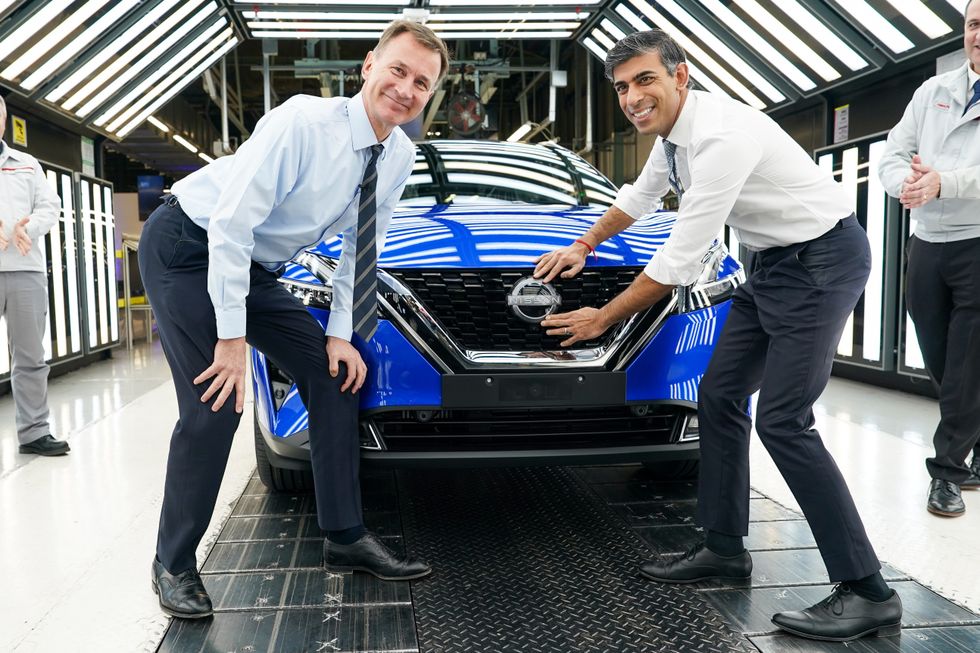There were fears that the existing rules would have made the UK car industry uncompetitive
PA
'Adopting the Commission’s proposal would be a pragmatic solution'
Don't Miss
Most Read
Trending on GB News
The UK and European Union appear to have come to an agreement to delay massive tariffs on electric cars which would have been introduced in less than a month.
In a proposal put forward by the European Commission, the “rules of origin” on electric vehicles has been delayed until 2027.
The Commission said it was a “one-off extension” and would help support automotive manufacturers in Europe and the UK.
The rules are in place to protect the European car-making industry from cheap imports from countries like China, which is quickly becoming a leading EV producer.
WATCH NOW: Rishi Sunak on Nissan's £2billion electric car investment
If the January deadline had passed and the tariffs were introduced, cars produced in the EU or UK would need to be made from parts sourced locally or they would face a 10 per cent tariff.
The UK automotive industry welcomed the European Commission’s proposal to extend the current rules of origin for EV batteries.
The Society of Motor Manufacturers and Traders (SMMT) has been one of the biggest backers of extending the policies, warning how it would have an enormous hammer blow to the UK industry.
It forecasted that manufacturers would potentially be hit with a bill of £3.7billion if the rules were to remain in place from January 1.
Trade of electric vehicles between the EU and UK has grown by more than 100 per cent in the three years since the EU-UK Trade and Cooperation Agreement (TCA) was signed.
Mike Hawes, SMMT Chief Executive, said: “Adopting the Commission’s proposal would be a pragmatic solution, safeguarding the future of the EU and UK automotive industries, supporting motorists, the economy and the environment.
“Such an extension would avoid damaging tariffs on the very vehicles we need consumers to buy, allow UK and EU manufacturers to compete with the rest of the world and, crucially, give the European battery industry time to catch up.
“Above all, voting for the proposal will enable us all to cut carbon emissions while supporting growth and jobs across the entire EV supply chain. We urge every party to get behind it.”
The European Commission said it would add a clause to the Brexit trade deal to make it “legally impossible” for the extension to go beyond 2027, with the EU-UK Partnership Council being unable to change the rules again before 2032.
The SMMT warned that any cost increase would act as a barrier to the uptake of electric vehicles, as well as undermining the competitiveness of the car industry.
There had been fears that factories may reduce production by up to 480,000 vehicles between January 2024 and December 2026 unless the rules of origin regulations are scrapped.
Maros Sefcovic, vice president of the European Commission, said: “The proposal is now on the table. It is for the Council to discuss and adopt it and my team, and I stand ready to help get it across the line over the coming weeks.”
The European Commission announced that it would also be providing an additional €3billion (£2.5billion) in funding to boost the manufacturing of EV batteries.
LATEST DEVELOPMENTS:

The new EU proposal was put forward this morning
PA
Speaking previously about the rules, Maros Sefcovic suggested that Brussels would interpret “made in Europe” loosely.








